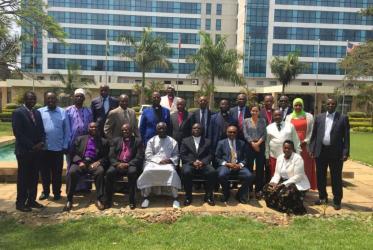The visit 9-10 February 2017 to the World Council of Churches by the Patriarch of the Ethiopian Orthodox Tewahedo Church, H.H. Abune Matthias, occasioned reflection on the distinctive history and traditions of that ancient church, as well as its role in Ethiopian society and in the larger ecumenical landscape. Coming to his work from a lifetime of service in the church and its monasteries and schools during an especially turbulent time, Abune Matthias was elected in 2013. The church numbers about 50 million members, including several million outside Ethiopia itself, where it accounts for about half the population. What follows is a brief interview with the Patriarch.
14 February 2017






